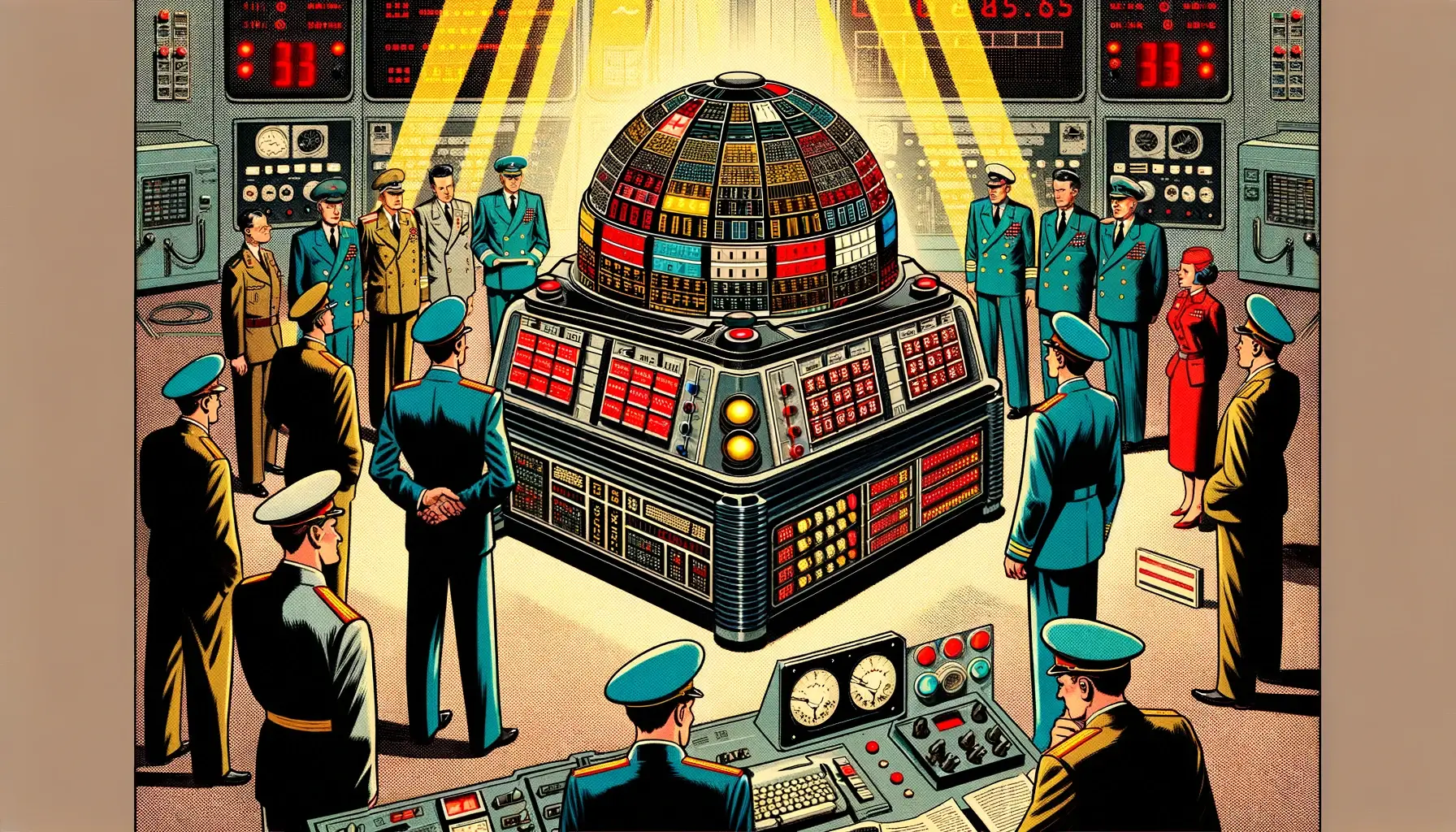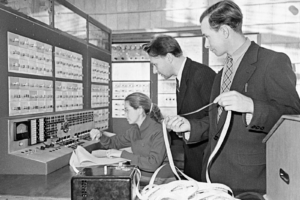The Collapse of Planned Obsolescence & End of Binary Thought

Break Free From The Tyranny of Binary Thinking
The collapse of planned obsolescence is happening before our eyes. Recent advancements in AI from China with DeepSeek & Alibaba are causing great consternation in the American stock market. Many people doubt the voracity of claims from China because of binary thinking that pits them against us in strictly adversarial contexts. While militarily and for geopolitical dominance this may be true, in the realm of computing, it’s all just 1’s & 0’s…for too many.
For most of modern history, the world has been engineered around binary logic—the foundation of computing, political discourse, and even personal relationships. Computers have conditioned us to see decisions in stark opposites: yes or no, true or false, friend or enemy. But as technology advances and global systems become more interdependent, this rigid framework is beginning to collapse.
The next great leap in human-computer interaction—ternary logic—challenges this outdated structure. Instead of operating on just 1 and 0, ternary systems introduce a third state, an uncertainty principle: maybe.
But before this transformation can fully take hold in computing, it must happen in us.
I have already had to adapt my thinking to live within uncertainty. Not by choice, but by necessity. The systems that have guided people through life—financial security, social trust, even objective truth—have failed me, forcing me to reconstruct my own method of survival.
And whether you realize it or not, this kind of adaptability to uncertainty will soon be required of everyone.
The Origins of Planned Obsolescence: The Phoebus Cartel and a Manufactured Reality
Planned obsolescence isn’t just a technological failure—it’s an engineered social construct.
The Phoebus Cartel, formed in 1924 by major lightbulb manufacturers like General Electric, Osram, and Philips, deliberately shortened the lifespan of incandescent bulbs from 2,500 hours to 1,000 hours. They didn’t do this because of material limitations—they did it because a longer-lasting product would reduce profits. This moment set the precedent for nearly a century of deliberate inefficiency in consumer goods.
This system wasn’t just something I learned about in history books—I later discovered that my own family had worked within this system. For years, I believed they had simply been part of legitimate industries. Only later did I realize that much of what they—and the corporations they worked for—built was designed to fail on purpose.
This realization was a personal “truth shock.”
When you grow up believing that something is real, only to later discover it was fabricated for control or profit, it forces you to retroactively question everything.
In a way, this introduces ternary logic after the fact. It tells you that you should have been uncertain all along.
Resolving Truth Shock With Ternary Logic
Many people will experience truth shock at some point in their lives. They will realize that something they once accepted as fact was actually a construct—not real in the way they had assumed.
- People raised in religious households who later become atheists or agnostics experience truth shock.
- Citizens who believed in their government’s integrity but later discover corruption experience truth shock.
- Anyone who has had a long-held belief overturned by new evidence has experienced truth shock.
What this does is introduce ternary logic retroactively—it tells you that your past certainty was misplaced. You should have been in a state of “maybe” all along.
This is a higher level of logic replacement. Not only do you realize that you were wrong—you realize that your entire way of categorizing knowledge was flawed.
And this is the same shift that will happen as we transition from binary to ternary computing.
Ternary Computing Is A Gateway for the Future of Human Thought
Ternary logic was first seriously explored in the late 1950s with the Setun computer, a Soviet-built system that operated on a three-state logic instead of binary. It was more efficient than its binary counterparts but abandoned in favor of the American-dominated binary standard.

Setun Computer, Soviet Union 1959
Only in recent years—particularly in Korea—have tech companies begun revisiting ternary computing as a serious alternative.
But today’s ternary advancements remain mostly emulative—modern transistors still operate in binary and merely simulate ternary conditions. True ternary computing requires a complete reconstruction of hardware and software from the ground up.
And just as technology must be rebuilt, so must human perception.
If you don’t evolve past binary thinking, you will struggle in a world increasingly driven by probabilistic computing, nuanced AI decision-making, and complex geopolitical entanglements.
Most people are mentally unprepared for this shift. But those of us who have already lived within the uncertainty of not knowing who to trust, not knowing where our next opportunity will come from, and not expecting the world to work in absolutes—we already think in ternary logic.
And we will thrive.
Binary Thinkers Will Be Left Behind
Look at the language people use today. How often do you hear:
- “I 100% agree”
- “I 100% disagree”
People demand absolution. Anything less makes them uncomfortable. The notion that both an idea and its counterpoint can be partially correct unsettles them.
I consume information differently. When I hear a news story, I don’t instantly categorize it as true or false. I recognize that most information is incomplete, biased, or distorted for a purpose. I calculate probabilities rather than assuming absolutes.
This kind of thinking is not just philosophical—it is practical survival.
The institutions that have upheld certainty are eroding:
- Media narratives are distorted and designed for engagement, not truth.
- Governments fabricate and suppress information as a strategic weapon.
- Economic stability is an illusion, with financial collapses exposing how fragile our systems truly are.
Those who cannot live with uncertainty will struggle when these systems break down further.
But those who can—those who already think in ternary logic—will be able to navigate the chaos.
From Disposable Thinking to Enduring Intelligence
Planned obsolescence was never about technical limitations—it was about control.
- The longer you use a device, the less money corporations make.
- The longer you think for yourself, the less power institutions have over you.
But ternary computing undermines this model.
- Ternary logic can reduce the energy consumption of chips, prolonging battery life.
- AI decision-making will become more probabilistic, leading to better long-term performance instead of rigid, failure-prone systems.
- Military technology will shift, relying less on binary “threat/no-threat” logic and more on dynamic, situational assessments.
And just as computing is breaking free from binary constraints, so must we.
The way people think has been designed to be disposable, just like their technology. They are trained to consume ideas, emotions, and relationships in pre-packaged, binary form:
- “You’re either with us, or you’re against us.”
- “This is either 100% right, or 100% wrong.”
- “I either trust this person completely, or I don’t trust them at all.”
But this way of thinking is just as planned and obsolete as the tech industry’s disposable devices. It is deliberate—because those who think only in binaries are easier to control.
If you can be programmed to believe that there are only two options, you will never seek a third.
Think in Multi-Value Dimensions, Or Be Left Behind
The future belongs to those who can handle complexity.
People who can navigate the uncertainty of not knowing who to trust, not knowing which information is real, not knowing the absolute “right” answer—they will thrive.
Those stuck in binary thinking will struggle to adapt to a world where decisions are made in gradients, not absolutes.
Ternary logic isn’t just the future of computing. It’s the future of human thought.
And if you don’t learn to think beyond binaries, you will be left behind.
